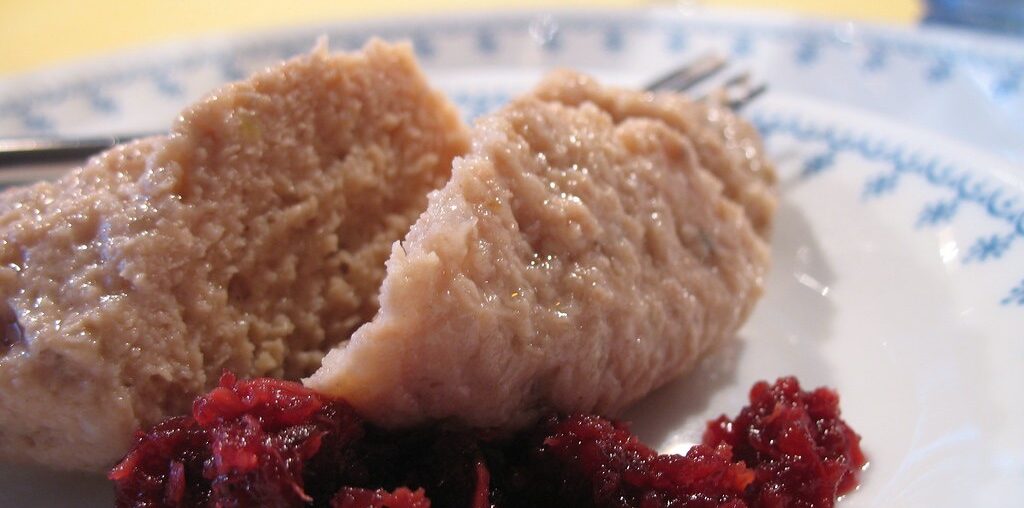Horseradish, finely grated, waits on the table. It was mixed with vinegar, a little sugar, salt, then scraped into a white porcelain bowl with its own silver spoon resting on the rim. It’s ready to spread over the gefilte fish that Bubbee makes.
She rubs raw whitefish against a chrome grater, then onions, carrots, a bit of skin off her knuckles. Adds eggs, a sprinkle of matzo meal, pepper and salt. Shapes into flattened cylinders with wet hands, poaches in bubbling broth.
Bubbee came to the US from the Polish Corridor of Russia with her brother, Uncle Nate, in 1915. They left their parents and seven other siblings behind. One sister would also escape from the pogroms; we have not been able to find any information about what happened to the rest of their family.
Zaydee loves horseradish and often tells me that it comes from mixing a horse and a radish, but he can’t fool me.
I know about the horse in his life: Zaydee gets up at 3 a.m., heads for the stable. Oats in feedbag, curry comb, harness and wagon, then off to Haymarket to buy potatoes, cabbage, grapefruit and pears, a little penny candy for the kids. He holds the reins lightly, up and down the neighborhoods to make his sales, calls to the housewives, a nickel a carrot, an apple a dime.
In 1913, Jewish young men were drafted into the Russian army to serve for 25 years, unless their family was wealthy enough to bribe the military board. When Zaydee got his draft notice, he and his parents scraped together enough money for him to be smuggled out in the cargo hold of a ship. He had to hide in a barrel, underneath a burlap sack of potatoes, while the ship was inspected before departure.
I also know about the radish in Zaydee’s salad: Thin red sharpness lurking among the bland green iceberg and cukes. Tangy crunch. “Don’t offer one to a horse,” says Zaydee. “He’ll think it’s going to be an apple, then spit it out all over you.”
Back home at mid-day, he pours a mountain of coins onto the kitchen table. My Zaydee, a rich man.
Uncle Nate did not marry until 1949, when he met and courted his sweetheart, Ann.
Aunty Ann always wore lovely dresses with long sleeves, even on that sunny day in August when I sat next to her at the picnic table, soft yellow silk slid up her arm, and I glimpsed the numbers.
“What’s that, Aunty Ann?”
“Oh, just something for grown-ups, Shayne meydele, beautiful girl,” she said, gentle fingers kissing my cheeks. “Go and play.”
And so she blessed me with a few more years of childhood.
Until that day in fourth grade, somewhere on the cusp between only myself and the larger world, when I learned about the six million and began my search for understanding—which, of course, I have never found.
We’re ready for lunch. Horseradish on gefilte fish for Zaydee, salad, rye bread, buttermilk. Bubbe spreads chicken fat on toasted challah, noshes at the stove, making my most favorite, blintzes fried in butter.
A busy day in the kitchen. “Oy vey, oy vey, tired feet.”
Inside my fluffy crepes: cottage cheese and farmer’s cheese, sugar, egg yolk, vanilla. Sour cream – not horseradish! – on top.

